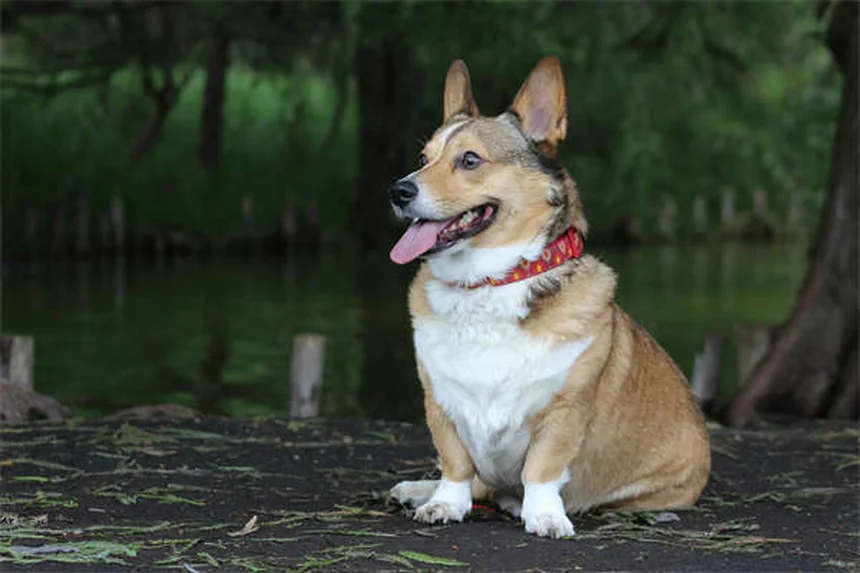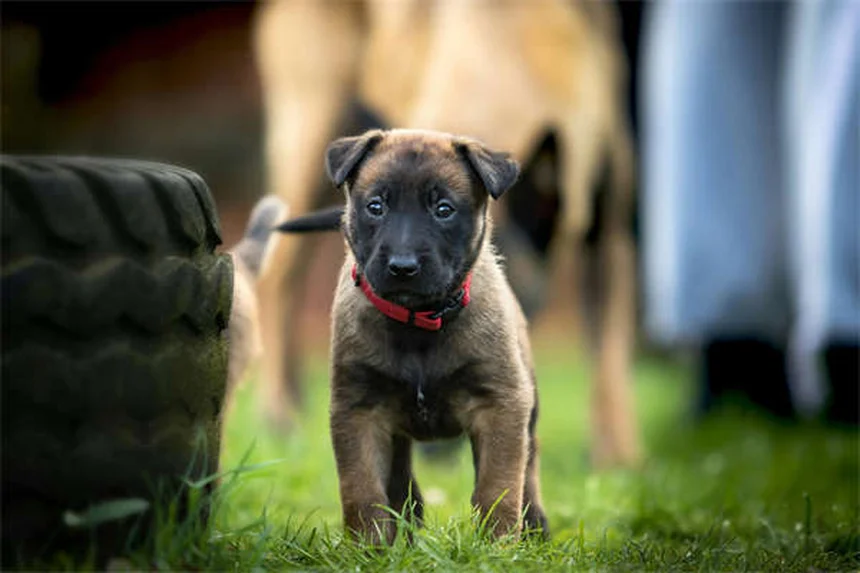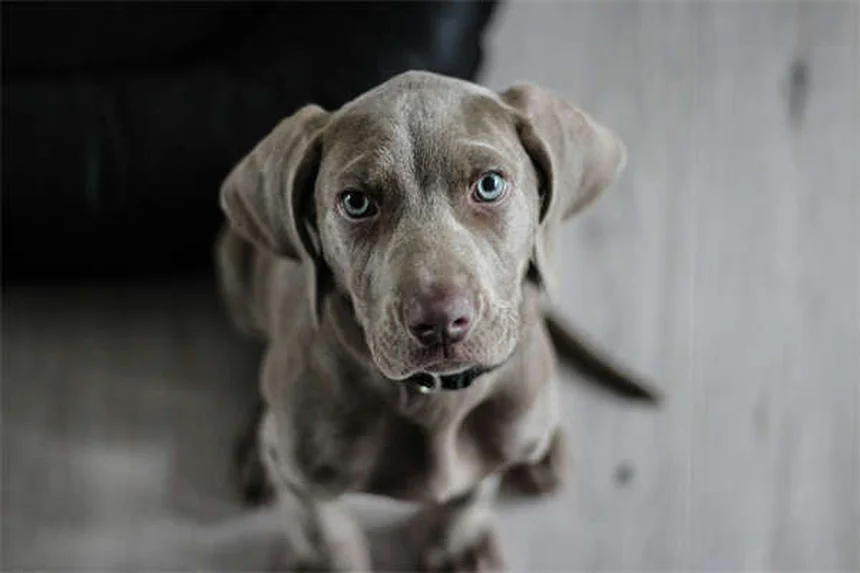Advertisement
Puppy development from 6-12 months is an exciting and sometimes challenging time! The answer is: your puppy is going through major physical and behavioral changes during this period. I've raised dozens of puppies over my 15 years as a dog trainer, and let me tell you - this is when things get really interesting! Your fur baby will gain most of their adult weight, develop all their permanent teeth, and start showing signs of sexual maturity. But here's the thing many new puppy parents don't realize: this is also when behavioral challenges often peak. Don't worry though - with the right approach to training, nutrition, and healthcare, you'll both get through this teenage phase successfully!
E.g. :Rat Tail Bite Wounds: Prevention & Treatment Guide
- 1、Your Puppy's Growth Journey (6-12 Months)
- 2、Nutrition Needs for Growing Pups
- 3、Training Through the Teenage Phase
- 4、Health Checkpoints You Can't Miss
- 5、When to Call the Vet
- 6、Beyond the Basics: Understanding Your Teenage Pup
- 7、Mental Stimulation: More Than Just Physical Exercise
- 8、Understanding Breed-Specific Needs
- 9、Building a Bond That Lasts
- 10、FAQs
Your Puppy's Growth Journey (6-12 Months)
Physical Changes You'll Notice
Wow, your fur baby is growing up fast! Between 6-12 months, you'll see some major physical changes. By 6-7 months, those adorable puppy teeth should be gone, replaced by a full set of adult chompers. And get this - your pup might reach 75-90% of their adult weight during this period!
Now here's something funny - around 8 months, you might catch your pup trying to "ride" their favorite stuffed animal or your leg. Awkward! This is completely normal behavior as they hit sexual maturity. If you haven't already, it's time to have "the talk" with your vet about spaying/neutering. The ideal timing depends on:
| Factor | Consideration |
|---|---|
| Breed Size | Large breeds often benefit from waiting longer |
| Health Status | Some conditions may require earlier intervention |
| Behavioral Issues | Marking/mounting may prompt earlier procedure |
Behavioral Development
Remember when your puppy was just learning "sit"? Those training sessions really pay off now! But here's a question: Is your puppy suddenly acting like they've forgotten everything you taught them? Don't panic - this is completely normal. Around 8-10 months, many pups go through a "teenage rebellion" phase.
Some common behaviors you might see include:- Selective hearing (they definitely know "come"... when they want to)- Increased curiosity (aka getting into everything)- Testing boundaries (how many times can I jump on the couch before mom gets mad?)
Nutrition Needs for Growing Pups
 Photos provided by pixabay
Photos provided by pixabay
Feeding Schedule Adjustments
You're probably wondering - how often should I feed my growing pup? Great question! At this stage, we recommend cutting back to 2-3 meals per day. But here's a pro tip: never go more than 12 hours between meals. Why? Because empty stomachs can lead to bilious vomiting (that gross yellow/green vomit you might find in the morning).
If you notice your pup getting hungry overnight, try this:1. Give a small bedtime snack2. Make sure fresh water is always available3. Stick to a consistent schedule
Transitioning to Adult Food
Between 10-12 months, it's time to start thinking about adult food. But wait - don't just switch overnight! A sudden change can upset your pup's stomach. Instead, try this gradual transition:
Week 1: 75% puppy food + 25% adult foodWeek 2: 50/50 mixWeek 3: 25% puppy + 75% adultWeek 4: 100% adult food
Training Through the Teenage Phase
Reinforcing Basic Commands
Remember when your puppy mastered "sit" at 3 months? Well, teenage pups have a funny way of "forgetting" commands they knew perfectly before. Sound familiar? This is when consistent positive reinforcement becomes super important.
Try these training refreshers:- Short, fun sessions (5-10 minutes max)- High-value treats for good behavior- Practice in different locations to generalize commands
 Photos provided by pixabay
Photos provided by pixabay
Feeding Schedule Adjustments
Is your pup suddenly chewing everything in sight? Or barking non-stop when left alone? First, take a deep breath - this too shall pass! But seriously, these behaviors often peak around 8-10 months.
Here's what might help:- More physical exercise (a tired pup is a good pup)- Mental stimulation (puzzle toys work wonders)- Consistent rules (no exceptions!)
Health Checkpoints You Can't Miss
Vaccination Updates
Did you know your puppy's mom's immunity wears off completely by 16 weeks? That's why keeping up with vaccines is absolutely crucial during this period. Core vaccines include:
- Rabies- Distemper- Parvovirus- Bordetella (kennel cough)
Common Health Concerns
Here's something that might surprise you: Why do puppies eat things they shouldn't? Simple - they explore the world with their mouths! But this can lead to dangerous situations. Keep these hazards out of reach:
- Medications- Cleaning supplies- Small objects they could choke on- Toxic foods (chocolate, grapes, etc.)
When to Call the Vet
 Photos provided by pixabay
Photos provided by pixabay
Feeding Schedule Adjustments
While most puppy antics are normal, some behaviors need professional attention. Call your vet if you notice:
- Excessive thirst/urination- Lethargy lasting more than a day- Repeated vomiting or diarrhea- Difficulty breathing
Preventive Care Schedule
Mark these important vet visits on your calendar:- 6 month checkup- 9 month wellness exam- 12 month adult dog checkup
Remember, we're here to help you through every step of puppy parenthood! Got questions? Our vet team is available daily from 6am to midnight ET. And the best part? It's completely free for Chewy customers (some exclusions apply).
Beyond the Basics: Understanding Your Teenage Pup
The Science Behind Those "Rebellious" Behaviors
Ever wonder why your previously well-behaved pup suddenly acts like they've never heard the word "no"? It's not just stubbornness - there's actual brain chemistry at work! During this adolescent phase, your dog's brain undergoes changes similar to human teenagers. The prefrontal cortex (responsible for impulse control) develops slower than the emotional centers, creating that classic "act first, think later" behavior we all know too well.
Here's a fascinating fact: researchers at Harvard found that dogs experience the most significant behavioral changes between 6-8 months. They tested impulse control in puppies and found that 8-month-olds performed 40% worse than both younger and older dogs. So when your pup ignores your recall command to chase a squirrel, remember - their brain literally can't help it!
Socialization: It's Not Just for Puppies
You might think socialization ends after the puppy stage, but that's like saying humans stop learning after kindergarten! Between 6-12 months, your dog develops permanent social preferences that'll shape their adult personality. This is the perfect time to:
- Introduce new dog friends (one-on-one playdates work best)- Expose them to different environments (city streets, hiking trails, etc.)- Practice calm behavior around distractions (squirrels, kids, bikes)
| Socialization Opportunity | Why It Matters | Pro Tip |
|---|---|---|
| Meeting new people | Prevents fearfulness in adulthood | Ask strangers to toss treats instead of petting |
| Car rides | Makes vet visits less stressful | Start with short trips to fun places |
| Surface walking | Builds confidence on varied terrain | Try grass, gravel, wood floors, and metal grates |
Mental Stimulation: More Than Just Physical Exercise
Brain Games That Actually Work
Think a long walk is enough to tire out your teenage pup? Think again! Adolescent dogs need mental challenges just as much as physical exercise. Here's a game changer: 15 minutes of nose work (like hiding treats for them to find) can be more exhausting than a 45-minute walk. Try these brain-boosting activities:
- Muffin tin game: Hide treats under tennis balls in a muffin tin- Name that toy: Teach them different toy names ("get your ball" vs "find your rope")- DIY puzzle feeders: Use empty water bottles with kibble inside
I'll never forget when my neighbor's 9-month-old Lab, Max, destroyed their couch cushions. After implementing daily nose work sessions? The cushions survived, and Max became the most focused dog on the block. True story!
The Power of Routine and Predictability
Here's something counterintuitive: while variety is great for socialization, predictability is key for reducing anxiety. Adolescent dogs thrive on routine because it gives them a sense of control in a world that's constantly changing (for them). Try structuring your day like this:
Morning:1. Potty break2. Breakfast in a puzzle toy3. Short training session4. Walk/playtime
Evening:1. Dinner2. Calm chew time (bully sticks work wonders)3. Final potty break
Understanding Breed-Specific Needs
Energy Levels: More Than Just Size
You might assume bigger dogs need more exercise, but that's not always true. A Border Collie at 35 pounds often needs way more activity than a 100-pound Great Dane. Here's a quick reality check: does your pup fall into one of these categories?
- High-energy breeds: Need 2+ hours of intense activity daily (Australian Shepherds, Jack Russell Terriers)- Moderate-energy breeds: Do well with 1-1.5 hours (Labradors, Spaniels)- Low-energy breeds: Often content with short walks (Bulldogs, Basset Hounds)
But here's the kicker - even within breeds, individuals vary. My friend's Beagle could hike for hours, while mine considers the walk from the couch to the food bowl sufficient exercise!
The Chewing Conundrum
Why do some breeds chew everything while others don't? It often comes down to genetics. Retrievers have a natural urge to carry things in their mouths, while herding breeds might prefer "mouthing" your ankles. Here's how to redirect that energy:
- For retrievers: Provide plenty of approved chew toys- For herders: Teach gentle play with flirt poles- For terriers: Use digging boxes filled with sand or rice
Remember that time you came home to find your favorite shoes destroyed? Yeah, we've all been there. The solution isn't punishment - it's providing appropriate outlets for those natural instincts.
Building a Bond That Lasts
Quality Time Beyond Training
Training sessions are great, but real bonding happens in everyday moments. Try incorporating these simple connection builders:
- Hand-feeding part of their meals while practicing calm behavior- Daily massage sessions (most dogs love gentle ear rubs)- Quiet time together - just sitting nearby while you read or watch TV
Here's a question I get all the time: Why does my dog follow me everywhere but ignore me when I call them? The answer's simple - following satisfies their curiosity, while recall requires self-control they're still developing. Be patient, use high-value treats, and never call them for something unpleasant (like bath time).
Reading Your Dog's Body Language
Those goofy teenage months are the perfect time to become fluent in "dog." Watch for these subtle signals:
- Lip licking/yawning: Often means stress, not tiredness- Play bows: An invitation to interact- Whale eye: Showing the whites of their eyes indicates discomfort
I'll never forget when a client thought their dog was "smiling" during greetings - turns out those pulled-back lips were actually a stress signal! Now they know to give their pup more space when meeting new people.
E.g. :New Puppy Care: 6-12 Months | PetMD
FAQs
Q: When should I switch my puppy to adult food?
A: You should start transitioning to adult food between 10-12 months, but here's how we recommend doing it right: Make the switch gradually over 3-4 weeks to avoid stomach upset. Start with 75% puppy food mixed with 25% adult food in week 1, then go 50/50 in week 2. By week 3, you'll do 25% puppy to 75% adult, and finally 100% adult food in week 4. Pro tip: Always choose an AAFCO-approved food and consult your vet about the best option for your pup's specific breed and size. Smaller breeds can often switch earlier than large breeds who need puppy nutrition longer.
Q: Why is my 8-month-old puppy suddenly misbehaving?
A: Welcome to the "teenage" phase! What you're seeing is completely normal - at around 8-10 months, puppies test boundaries just like human teenagers. They might "forget" commands they knew perfectly before or start chewing things they shouldn't. The key is consistency - keep up with training using positive reinforcement. Short 5-10 minute sessions with high-value treats work best. And remember - this phase will pass! In my experience, most pups settle down again around 12-14 months if you stay patient and consistent.
Q: How often should I feed my 9-month-old puppy?
A: At this age, we recommend feeding 2-3 times daily, but here's the critical detail: never go more than 12 hours between meals. Why? Because empty stomachs can cause bilious vomiting (that yellow/green vomit you might find in the morning). If your pup seems hungry overnight, try a small bedtime snack. Stick to a consistent schedule and measure portions carefully - overfeeding during this growth period can lead to obesity later. Your vet can give you exact portion recommendations based on your dog's breed and activity level.
Q: What vaccinations does my puppy need at this age?
A: By 6 months, your puppy needs several core vaccines if they haven't received them already: rabies, distemper, parvovirus, and bordetella (kennel cough). Important note: Maternal immunity wears off completely by 16 weeks, making vaccinations crucial. Some vaccines require boosters - for example, bordetella often needs a booster at 6 months. Your vet may also recommend leptospirosis or canine influenza vaccines depending on your location and lifestyle. Keep records of all vaccinations and set reminders for boosters!
Q: When should I spay/neuter my puppy?
A: The ideal timing depends on several factors that we discuss with every puppy parent: breed size (large breeds often benefit from waiting longer), health status, and any behavioral concerns. Generally, we recommend between 6-12 months, but consult your vet for personalized advice. Early spay/neuter (before 6 months) may increase certain health risks in large breeds, while waiting too long with small breeds could lead to unwanted litters. Your vet will consider your pup's individual needs to determine the best timing.







